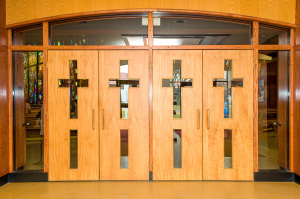A Better Alternative to Assisted Suicide
Pushing Back the Culture of Death

The culture of death is claiming new victims — not only at the beginning of life but also at the end of life. Why killing is never compassion . . .
Are there ever times when deliberately taking an innocent human life is okay? What if our intentions are merciful? What if we're trying to relieve the suffering of one we love?
My home state of Colorado is asking these questions right now. A bill before the legislature would make us the fifth state to legalize assisted suicide, following Oregon, Washington, Vermont, and California. Sponsors of the bill are proposing it under the commonly used name "Death with Dignity."
That's a euphemism for killing elderly and terminally-ill patients by giving them a cocktail of toxic drugs. And unlike abortion, which has become less and less justifiable with the availability of ultrasound and neonatal care, it's easy to make physician-assisted suicide sound compassionate.
"I feel that it's a basic human right to be in charge of your own destiny," says assisted suicide proponent Lance Wright. "The situation now is that you and I are not in control of what happens at the end of our lives."
Wright thinks that we should be in control, and that assisted suicide is the means. Many agree with him, and it's not hard to see why. Writing at Linkedin, emergency physician Louis Profeta describes the grisly details of what it looks like when doctors keep dying patients alive at all costs:
"Nearly 50 percent of the elderly US population," he writes, "now die in nursing homes or hospitals … surrounded by teams of us doctors and nurses, medical students, respiratory therapists and countless other health care providers pounding on their chests, breaking their ribs, burrowing large IV lines into burned-out veins and plunging tubes into swollen and bleeding airways," all to delay the inevitable.
Profeta contrasts this with a time when the terminally ill and elderly slipped away quietly at home, surrounded by loved ones who offered comfort. He admits to fearing a day when physicians like him who've given aggressive end-of-life treatment will face God, Who'll ask them, "What . . . were you thinking?"
All right. Let's begin by clearly stating that valuing life does not mean staving off death at all costs. We who believe in the resurrection of the body should be the first to reject this notion. But we've got to reject speeding up death through so-called "death with dignity" as the answer as well.
As hospice volunteer Krista Kafer explains at The Federalist, when we elevate suicide as a solution, it exerts a "poisonous effect on the practice of medicine," directly contradicting the Hippocratic Oath, which binds physicians never to "give a deadly drug to anybody who asks for it."
Offering a poison pill to patients in pain distorts the motives of all involved. Insurance companies, hospital staff, government agencies, and even family members suddenly have an increased financial stake in a speedy death. And as we've seen in other countries, lines of "consent" and "futility" can blur, and even patients with psychological issues, like depression and schizophrenia, often become targets.
What's more, the emotional appeal of assisted suicide depends on a false dilemma. Weeks of agonizing, futile treatment, or death-by-doctor are not the only choices. Kafer suggests that hospice and palliative care are viable, humane, life-affirming options for the dying. I'll link you to resources on these options at BreakPoint.org.
In the meantime, we have our work cut out for us. With a cascade of states turning caregivers into potential executioners, we've got to help our neighbors understand that although assisted-suicide may sound compassionate and dignified, it's neither. It just dehumanizes patients and physicians.
As 1 Samuel 2 says, "The LORD brings death and makes alive; he brings down to the grave and raises up."





























